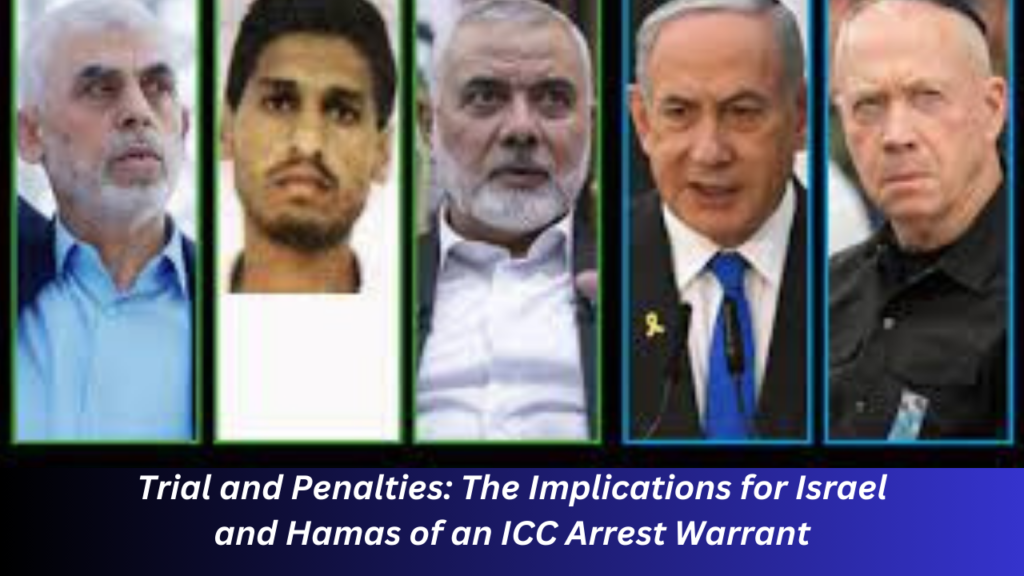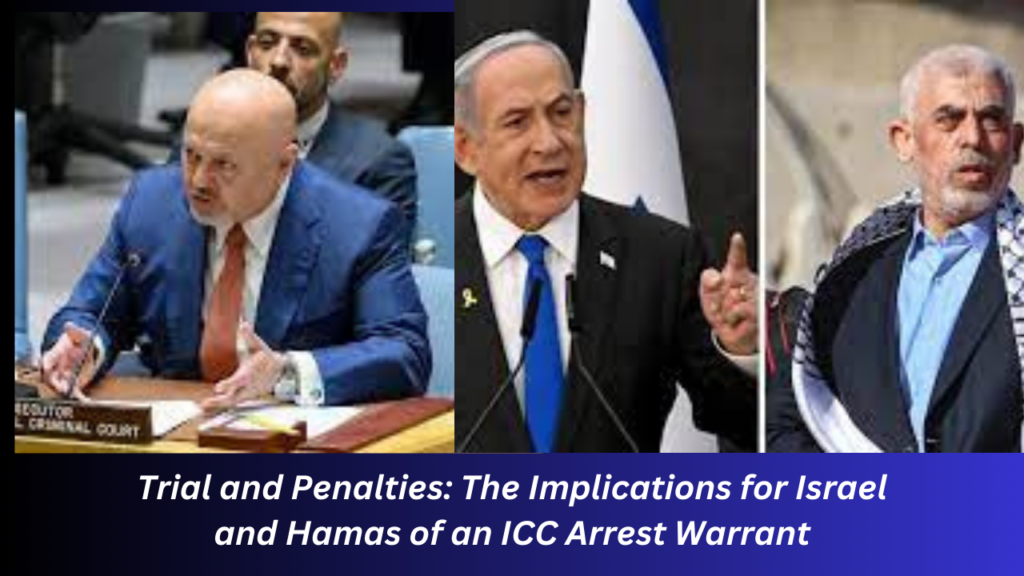Trial and Penalties: The Implications for Israel and Hamas of an ICC Arrest Warrant

A head of state is expected to face charges for the first time from an international criminal tribunal that has the backing of the West.
“Making statesmen responsible to law is the ultimate step in avoiding periodic wars, which are inevitable in a system of international lawlessness,” American judge Robert Jackson famously promised during his opening remarks at the Nuremberg Tribunal following World War II. And let me be clear: this rule covers, and if it is to be meaningful, it must condemn aggression by any other nation, including those who sit here in judgment, even though it is initially enforced against German aggressors.”
It has now been accomplished, 79 years after the promise was made. A head of state is expected to face charges for the first time from an international criminal tribunal that has the backing of the West.
What fees are involved?
The International Criminal Court’s (ICC) prosecutor, Karim Khan, declared on May 20, 2024, that he has moved to have Israeli Prime Minister Benjamin Netanyahu, Defense Minister Yoav Gallant, and Hamas leaders Ismail Haniyeh, Yahya Sinwar, and Mohammed Deif placed under arrest.
The Hamas leaders are accused of mass murder, torture, brutal treatment, rape, and hostage-taking in addition to sexual assault and imprisonment. The charges against Netanyahu and Gallant include intentional targeting of civilians, purposeful starvation of populations as a tactic of warfare, torture, inhumane treatment, and damage.
The wide range of offenses on both sides was unexpected, notwithstanding the arrest warrants. Following Russia’s invasion of Ukraine, President Vladimir Putin was the only person for whom arrest warrants were obtained. The only complaint against him was the unlawful removal of children from Ukraine, a crime he essentially acknowledged in a broadcast interview. The prosecutor may be expecting that by pursuing a wider variety of charges, more allegations will be proven true or that these charges will eventually be tried.
Not specifically genocide, but war crimes and crimes against humanity are the charges in this case. This may have an impact on attempts to have Israel held accountable as a state before the International Court of Justice (ICJ). The International Criminal Tribunal for the former Yugoslavia, which prosecuted people for the crime of genocide, produced findings that the International Court of Justice (ICJ) used to conclude that genocide had taken place at Srebrenica. The ICJ would not use a comparable foundation to decide a case thus far.
By concentrating on ‘extermination’—the widespread slaughter of civilians as a part of a governmental or organization policy—the ICC prosecutor seems to have evaded the accusation of genocide. This might satisfy the higher legal bar of demonstrating a desire to eliminate the Palestinian people as a group, while yet being consistent with the common understanding of what genocide involves.

Now, what will happen?
The pre-trial chamber will now consider the prosecutor’s request and determine whether to uphold the charges. A trial will take place if the charges are proven true and the accused is brought before the judge. The defendants must be present for the ICC to hold a trial. A case before the court may be postponed for up to a year by the five permanent members of the Security Council, which includes the United States. However, this takes nine affirmative votes and is unlikely to occur in the event of a veto.
While Hamas leaders, particularly Haniye, who is currently in Qatar, can be turned over to the Court, Netanyahu’s immunity as the current president of state is a significant question. This problem also came up when the ICC issued arrest warrants for both Putin and Omar Al-Bashir, the former president of Sudan.
Since the ICC lacks a police force of its own, national jurisdictions are used to carry out the enforcement of its arrest warrants. The Court has previously ruled that all 124 of its member states—excluding Pakistan, which rejects the Court’s jurisdiction—are legally required to uphold the Court’s warrants and detain anyone who is the subject of an outstanding order and enters their nation.
Such demands have been rejected by most states. Despite visiting over 22 states, Al-Bashir is renowned for not having been arrested in any of them. There are now 17 people on the loose who have arrest warrants against them. I thought that Netanyahu was immune from criminal prosecution, just as I thought Putin and Bashir were. Being the head of state at the moment shields him from prosecution, so he shouldn’t be detained.
But in Western states, there might not be a position quite as consistent as mine. Although US Secretary of State Antony Blinken called the arrest warrant against Netanyahu “shameful,” US President Joe Biden had stated that the one against Putin was “justified.” Meanwhile, African nations came under fire from the European Union for failing to detain Bashir.
It would be fascinating to observe how these states respond to the current arrest warrants against Netanyahu, particularly Germany, which advocated for Sudan to respond to the arrest warrant against Bashir in a “sober way” and claimed that the warrant against Putin demonstrated that “nobody is above the law.” That means Netanyah shouldn’t be considering a summer vacation in Munich.
Does the criminal justice system function?
Stalin recommended that all Nazis should be murdered while deciding what to do with the vanquished party after World War II. Churchill concurred, saying that everyone ought to be shot. Roosevelt, on the other hand, disagreed and convinced them that an international court should preside over proceedings. “That four great nations, flushed with victory and stung with injury, stayed the hand of vengeance and voluntarily submitted their captive enemies to the judgment of the law is one of the most significant tributes that power has ever paid to reason,” Justice Robert Jackson said in a statement that was really quite beautiful.
The Nuremberg trials gave rise to contemporary international criminal law.
However, the idea that the trials had “discredited Nazi leaders and helped the German people quickly transition into a Western bulwark” was one of the main factors that contributed to Nuremberg’s reputation as a success. However, we now know that they didn’t do it. Germans were given two questions in annual opinion polls conducted between 1946 and 1958: Did you believe Hermann Göring and the other Nazis were guilty? Do you believe that the trials of Hermann Göring and the other Nazis were fair? Over a ten-year period, 85–90% of Germans responded negatively to both questions annually.
